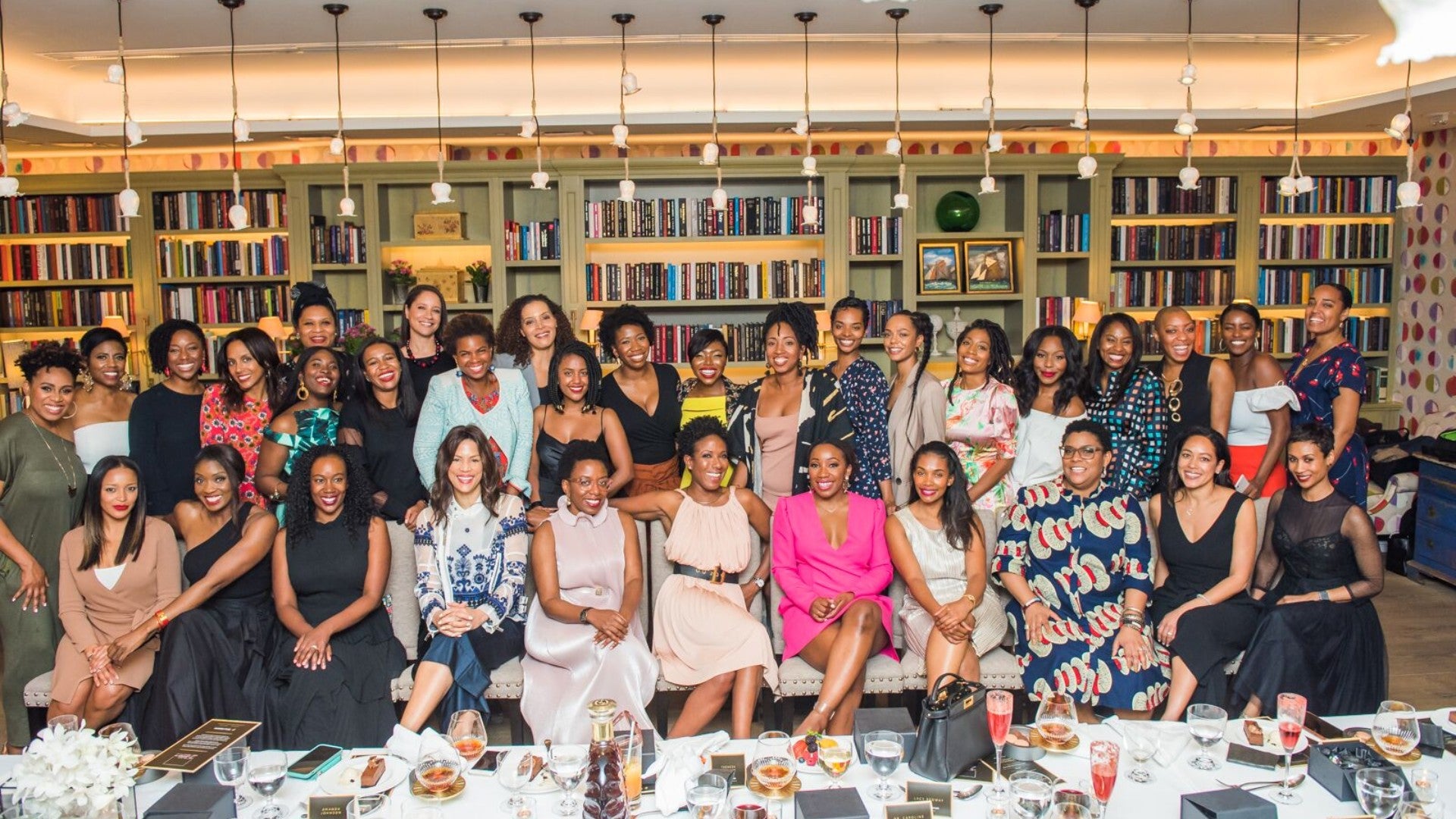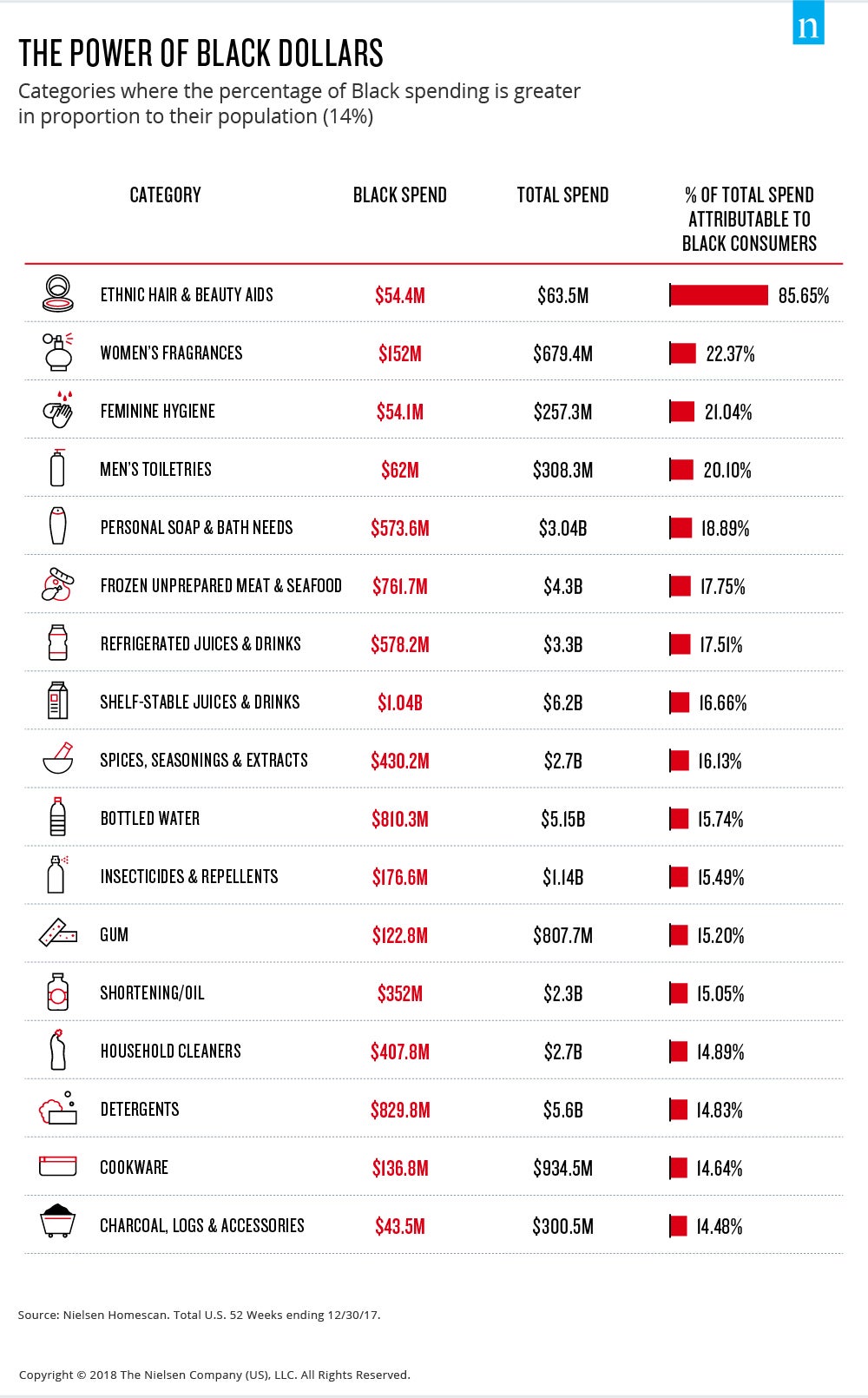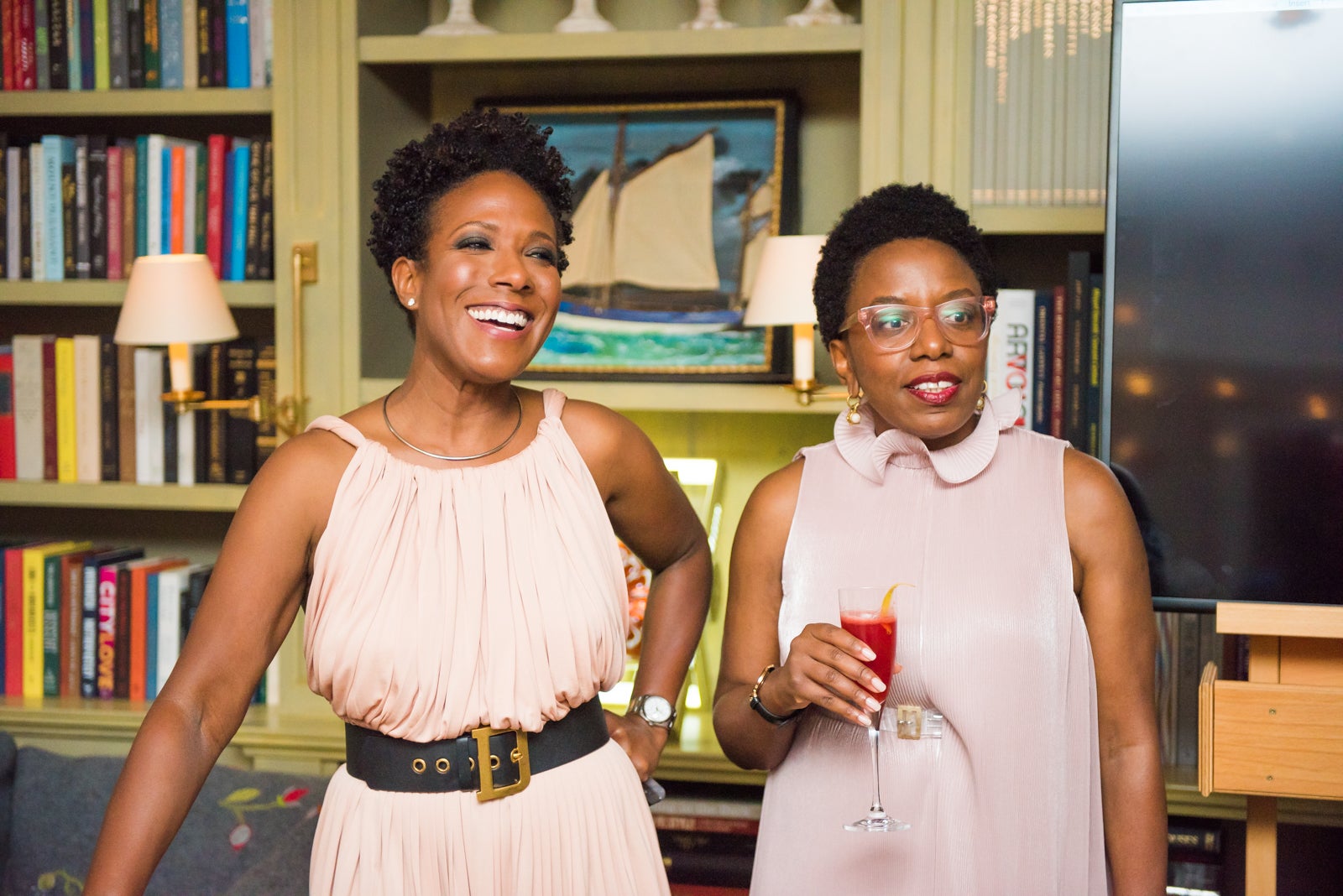
When you walk into a room filled with some of the most powerful Black female executives, businesswomen, entrepreneurs, and influencers in the beauty industry, you can expect magic to be made. This was exactly what happened when 25 Black Women in Beauty launched with its first annual dinner, sponsored by Rémy Martin XO, at the Whitby Hotel in New York City late June. It was a night of ideation, commitment to growth, and the coming together of the best of the best to share in experiences. Created by industry executives Cara Sabin and Ella T. Gorgla, 25 Black Women in Beauty’s mission is “to celebrate, elevate and promote black women in the beauty industry through constructive, intentional collaboration and networking while inspiring one another toward collective greatness.”
“25 Black Women in Beauty will serve as a space for collaboration, mentorship and perhaps most importantly a source of inspiration for corporate professionals, entrepreneurs and influencers,” said co-founder Ella Gorgla. “There is strength in numbers, and it’s important that we know we exist.”
Guests included Sarah Curtis-Henry, Senior Vice President & General Manager of Fresh, Sharon Chuter, founder of UOMA Beauty, Melissa Butler, founder and CEO of The Lip Bar, Kahlana Barfield Brown, former Beauty Director at InStyle, Karla Evans-Davis, Senior Director of Integrated Marketing & Media at Ulta Beauty, and supermodel Veronica Webb, the first Black model to land an exclusive contract with a major cosmetics brand.
According to 25 Black Women in Beauty, women of color are projected to be the majority of all women in the workforce by 2060 and generate over $1 trillion in consumer spending power. As entrepreneurs we contribute $361 billion in revenue to the economy, launching new companies at quadruple the rate of all women owned businesses. In 2009 ESSENCE did a study that showed that Black women spent $7.5 billion annually—80 percent more in cosmetics and twice as much in skincare versus non-Black consumers. In a 2018 Nielsen study about how Black dollars impact markets, the influence of spending amongst Black women was eye-opening. Black women spent $54 million in the “ethnic hair and beauty” market in 2017, making up 85 percent of the total spent that year.

“Our research shows that Black consumer choices have a ‘cool factor’ that has created a halo effect, influencing not just consumers of color but the mainstream as well,” said Cheryl Grace, Senior Vice President of U.S. Strategic Community Alliances and Consumer Engagement at Nielsen. “These figures show that investment by multinational conglomerates in R&D to develop products and marketing that appeal to diverse consumers is, indeed, paying off handsomely.”
The 25 Black Women in Beauty website boasts a career board where members can find open high-level and desirable positions in the beauty industry. Right now, there is no cost to becoming a member, but the dinners are by invitation only, so you do have to be a member to participate. And with more dinners planned for the US and globally, it’s a network worth leaning into. For those who dare to compare the organization to Cosmetic Executive Women (CEW), the co-founders consider this to truly be the first of its kind.

“We all know that women of color represent a huge financial opportunity for the beauty industry. Ultimately, to truly connect with [them], it’s imperative our influence as executives, innovators and creators is further amplified. Representation matters and it needs to be visible,” said co-founder Cara Sabin.
“If the beauty industry wants to continue to grow, expand and remain relevant, it’s imperative that women of color not just be spoken to at the point of sale, but that our contributions in the lab, boardroom and as creatives be represented. That’s where true authentic consumer connection can happen.”